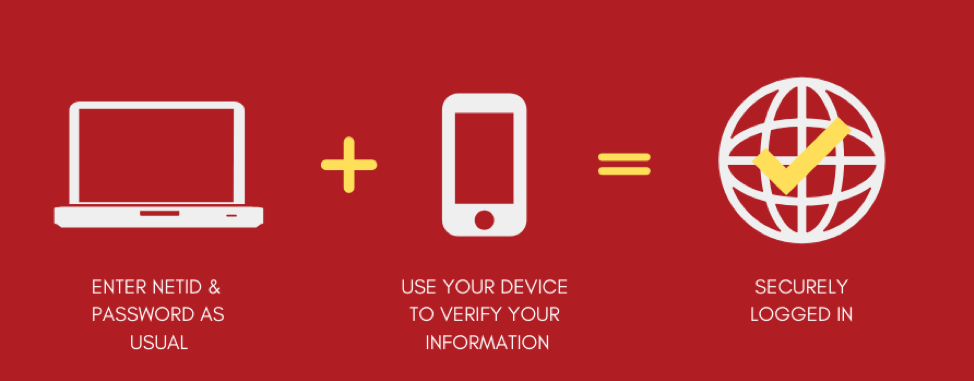Multi-Factor Authentication
Multi-factor authentication (MFA) is a login authentication method requiring multiple proofs of identity. Most IT services currently require your username and password. MFA adds another proof, such as a code sent via text, to an app, or to a phone. WKU is already using MFA for very sensitive systems like the VPN.

Why Do We Need MFA?
Many organizations now utilize MFA as an extra security measure to protect sensitive or private data. MFA reduces the threat of compromised user accounts (ex., hacking) because it takes more than a username and password to access an account. Examples you may have already seen include your bank, PayPal, and social media sites.
User Guides
Using Microsoft Authenticator App Offline
How do I authenticate using the Microsoft Authenticator app if my smart phone or mobile device does not currently have internet connectivity?
InstructionsUsing a Yubico Key Fob for Microsoft Authentication
How do I configure a Yubico USB Security Key Fob to work with Microsoft's Two-Factor Authentication requirements?
InstructionsUsing Microsoft Authenticator App
How do I set up the Microsoft Authenticator app on my device?
InstructionsNeed More Assistance?
Contact the ITS Service Desk with any other questions or issues.
ITS Service DeskBeware of MFA Scams and Phishing Attempts
Scammers are increasingly targeting MFA codes as a way to bypass security, so it’s essential to know how to recognize these tactics and keep your accounts safe. Here are some tips:
Never Share MFA Codes with Anyone
MFA codes are private and should never be shared, even if someone claims to be from the university’s ITS department. Legitimate support staff will never ask for your MFA codes.
Recognize Phishing Attempts
Emails, text messages, or phone calls that ask for your MFA code are often scams. Be cautious of any unsolicited communication that:
- Urges immediate action.
- Contains suspicious links.
- Comes from unrecognized or unusual email addresses.
Beware of Urgent or Alarming Messages
Scammers may send messages that appear to be from the university or reputable services, stating things like, "Your account will be locked," or "Suspicious activity detected." These messages are often designed to trick you into providing your MFA code.
Need Assistance?
The WKU ITS Service Desk is here to help. Give us a call, chat with a representative online, use the Self-Help Knowledge Base and more.

